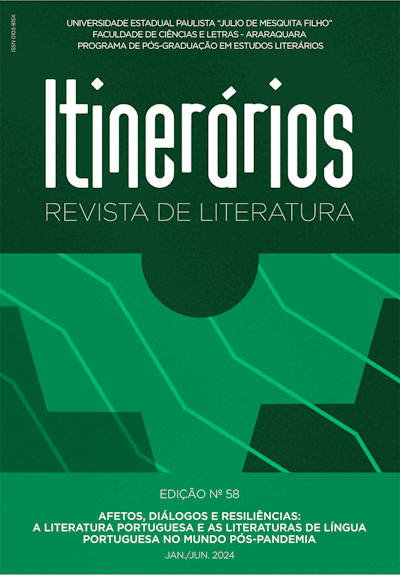Portugal, suicidal people
an unamunian reading of The year of the death of Ricardo Reis, by José Saramago
DOI:
https://doi.org/10.58943/irl.v1i58.18751Keywords:
Saramago, Unamuno, The year of the death of Ricardo Reis, Death, SuicideAbstract
This article aims to present Miguel de Unamuno as a literary critic of Portuguese literature and as a thinker of the “tierras de Portugal” who decisively impacts the narrative progress and the ethical-aesthetic meanings of the novel The year of the death of Ricardo Reis, published by José Saramago already in end of the 20th century (1984). From a dialogical perspective, we bring the Saramago from the 1980s and Unamuno (Basque intellectual from the first half of the 20th century, who died in 1936) together, to inscribe them into the heart of Iberian culture, in order to think about the literary and historical connections between the beginning and end of the “century of extremes” (Hobsbawm, 2008) in Portugal. We focus, above all, on unamunian thought about Portugal and Portuguese literature expressed in the works Por tierras de Portugal y de España (Unamuno, 1911) and Portugal povo de suicidas, a collection of essays by Unamuno published in Portugal, in 1986, highlighting the sepulchral tone of these critical notes. With the contribution of studies by Carlos Reis (2022) about Saramaguian prose, we discuss death and self-inflicted death in the construction of the 1984’s publication and evaluate the permanence of Unamunian thought in the poetics of the Portuguese Nobel Prize winner.
Downloads
Published
Issue
Section
License
Os manuscritos aceitos e publicados são de propriedade da revista Itinerários. É vedada a submissão integral ou parcial do manuscrito a qualquer outro periódico. A responsabilidade do conteúdo dos artigos é exclusiva dos autores. É vedada a tradução para outro idioma sem a autorização escrita do Editor ouvida a Comissão Editorial.

